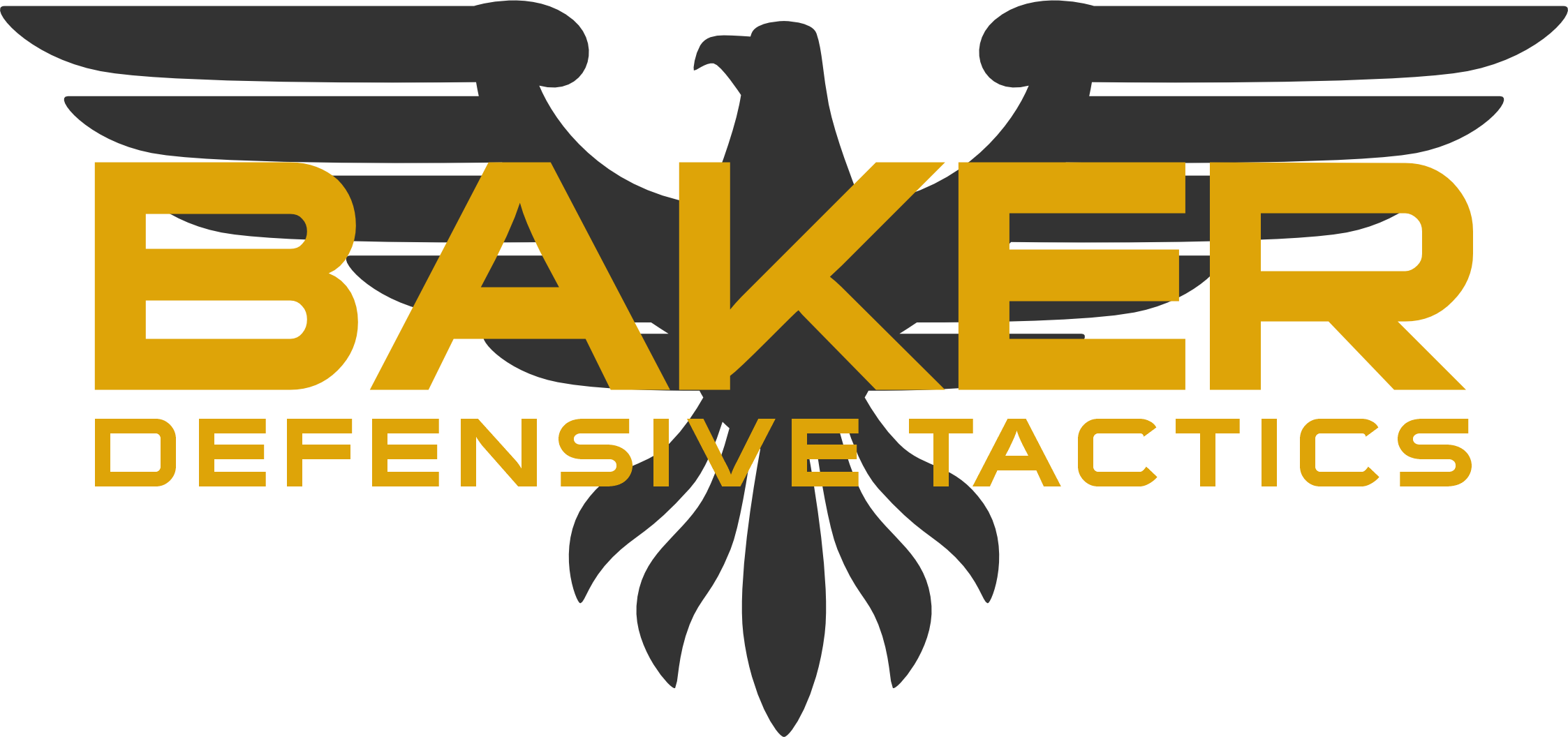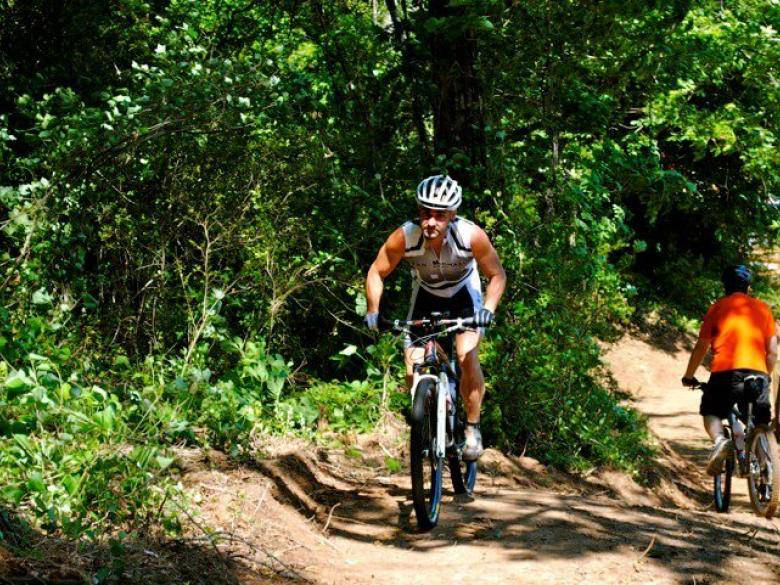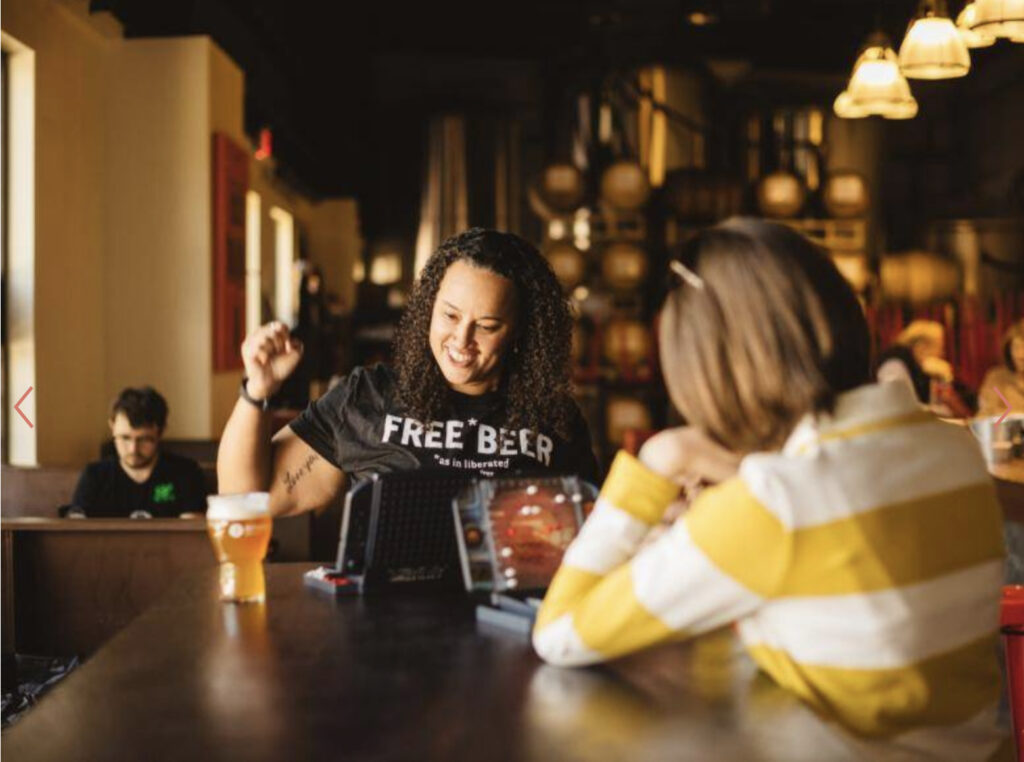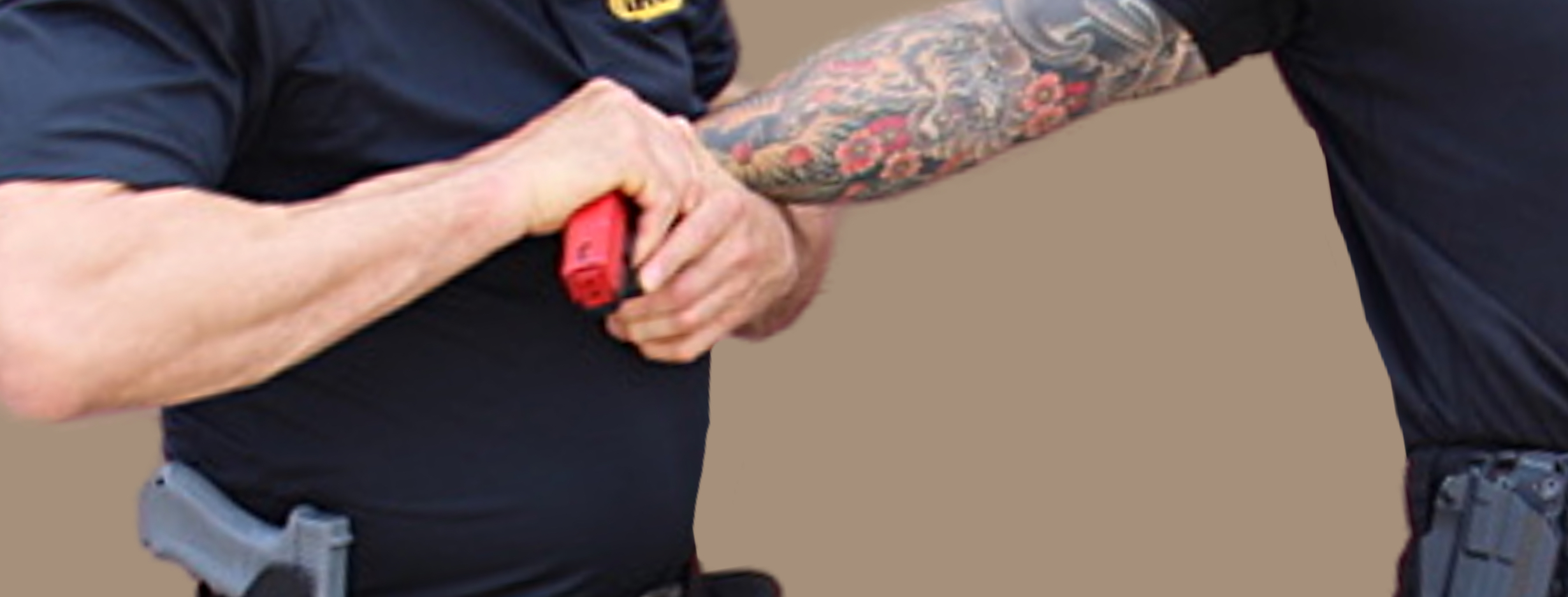


BDT Close-Quarter Combatives Course
MARCH 9-10, 2024
The BDT Close-Quarter Combatives Program is tailored for situations where concealed weapons might not be an option, necessitating potent hand-to-hand defensive techniques. The program delves into understanding the predator’s mindset, identifying pre-attack indicators, and recognizing when you’re being targeted. It also underscores the verbal dance that often precedes physical confrontations. Equipping oneself with physical and verbal defensive tools is paramount for a holistic defense approach.
The term “Everyday Carry (EDC)” pertains to daily essentials, particularly, in this context, a concealed firearm. Traditional martial arts, while proficient, may not fully address the nuances of protecting your EDC. Engaging with an opponent using conventional techniques could compromise the security of a concealed firearm, potentially heightening the danger.
Refining our approach becomes crucial to counteract this, ensuring that one’s EDC is always safeguarded. The program places special emphasis on mastering the art of close-quarter firearm control, underlining its criticality in self-defense scenarios.
In the expansive realm of self-defense training, firearms instruction and combatives frequently take center stage. Many devotees alternate their weekends, dedicating one to refining their marksmanship and another to enhancing their hand-to-hand combat prowess. Yet, there’s a growing acknowledgment of the importance of merging these two disciplines. This methodology leans into our innate, primal responses under duress. The program was born from Coach Baker’s deep-rooted martial arts expertise and tenure coaching law enforcement, security experts, and military personnel.
In addition to other skills, our focus will be significantly directed toward mastering weapon retention and disarming techniques in close-quarter situations. It’s crucial to understand and anticipate the moment a threat manages to get within arm’s reach and compromises the security of your firearm. During these critical seconds, your response can determine the outcome of the encounter.
We will delve into detailed scenarios where an assailant might attempt to wrest control of your weapon, teaching you not only how to physically retain your firearm but also to employ strategic maneuvers that disrupt the attacker’s balance and focus, giving you the upper hand. By recreating these high-pressure situations, we aim to fortify your muscle memory, ensuring your reactions become instinctual and swift.
Course Description
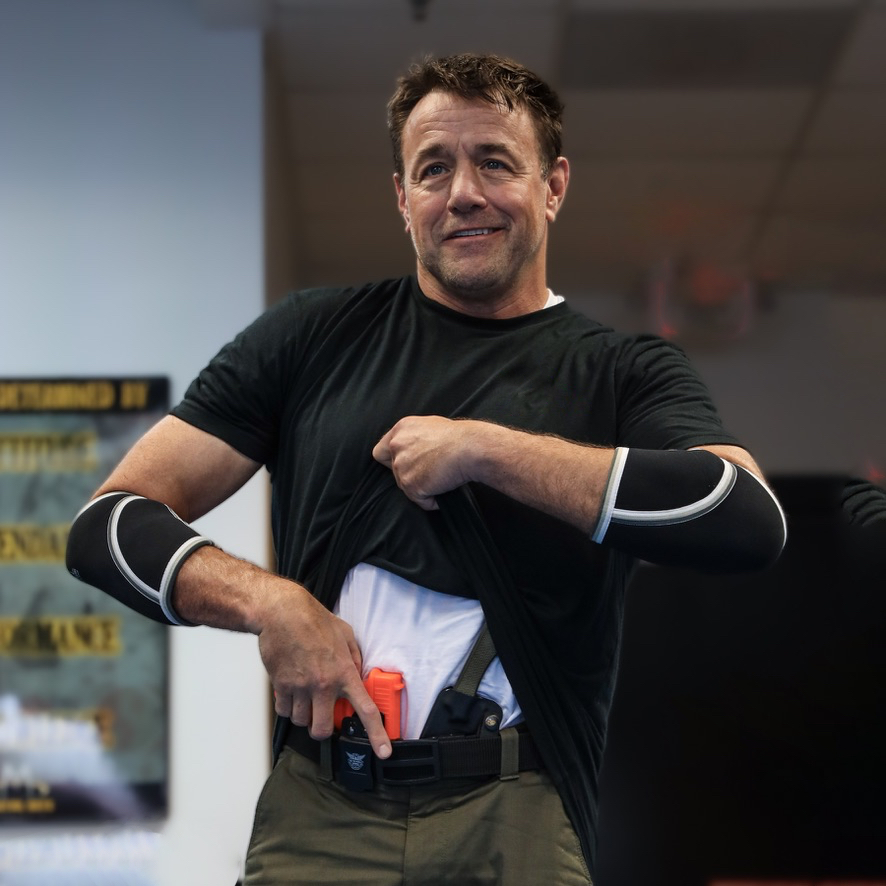
This course spans two days, offering a 12-hour comprehensive training that adopts a multi-faceted methodology to develop practical and combative capabilities.
This course is structured to impart core principles of smooth integration, setting the foundation for proactive problem-solving during intense social interactions. We’ll address verbal engagements prior to physical contact, introduce non-offensive control methods for minor confrontations, and delve into strategies for escalated physical altercations when restraint is no longer an option.
Topics Covered
- Pre-contact physical and verbal posturing applications.
- Control methods for low-level resistance.
- Force methods for non-lethal scenarios.
- Principles of socially and legally appropriate defensive actions.
- “Everyday Carry (EDC)” considerations in self-defense.
- Combatives and firearm control in close-quarter situations.
- Weapon retention and disarming techniques.
- Understanding body language and predator behavior.
- Importance of appearance and perception in defense scenarios.
- Coach Alan’s Universal Principles from his combat arts experience.
- Tactics for handling elevated unarmed force levels.
- Negotiating aggression from single or multiple threats.
- Introduction to Dog Boxing for out-of-position fighting.
- Skills for fighting in challenging environments like against walls, vehicles, or on the ground.
- Multi-tool principle for high-stress decision-making.
- Combat Blueprint and predatory mindset principles.
- Visual appropriateness and social acceptability in self-defense.
- Introduction to common ground positions in grappling.
- Defensive techniques against violent attackers on the ground.
- Creating distance and time for effective defensive measures.
- Counter grappling and ground fighting concepts.
- Differentiating between sport-based grappling and self-defense grappling.
- Techniques for ground engagement, including defensive and offensive guard options.
- Mechanics of ground movement and survival.
- Handling various ground scenarios like side control and mount.
Course Details:
- Who: Sifu Alan Baker Of BDT, & Dennis Rousseau of Force Solutions
- What: BDTCQC Close-Quarter Combatives Course
- When: MARCH 9 – 10, 2024 (SAT: 9-4, SUN: 9-4)
- Where: Woodstock, GA, Atlanta Martial Arts Center
Course Tuition
Course Tuition Is: $500.00
Attendance will be held to 10 students.
Please note that pre-registration is mandatory for this event! To initiate the process, reach out to us using the contact information below. Upon acceptance, you will receive a payment link to secure your place at the event.
For Training Questions Contact Alan Baker at: sifualanbaker@gmail.com
Sign Up By Clicking Below
Refunds
This course represents a significant time and financial commitment for both participants and organizers. It has a strict refund policy due to high demand and limited spots. Cancellations made over 30 days before the class are fully refundable. Between eight and thirty days prior, tuition isn’t refundable but can be applied to another program within 12 months. Cancellations within a week of the class result in forfeiture of tuition. If a class is canceled by the organizers, enrolled students will receive a full refund.
Location
Defensive Tactics Training Will Be Held At The Atlanta Martial Arts Center
180 Pkwy 575, STE 110 Woodstock, GA 30188
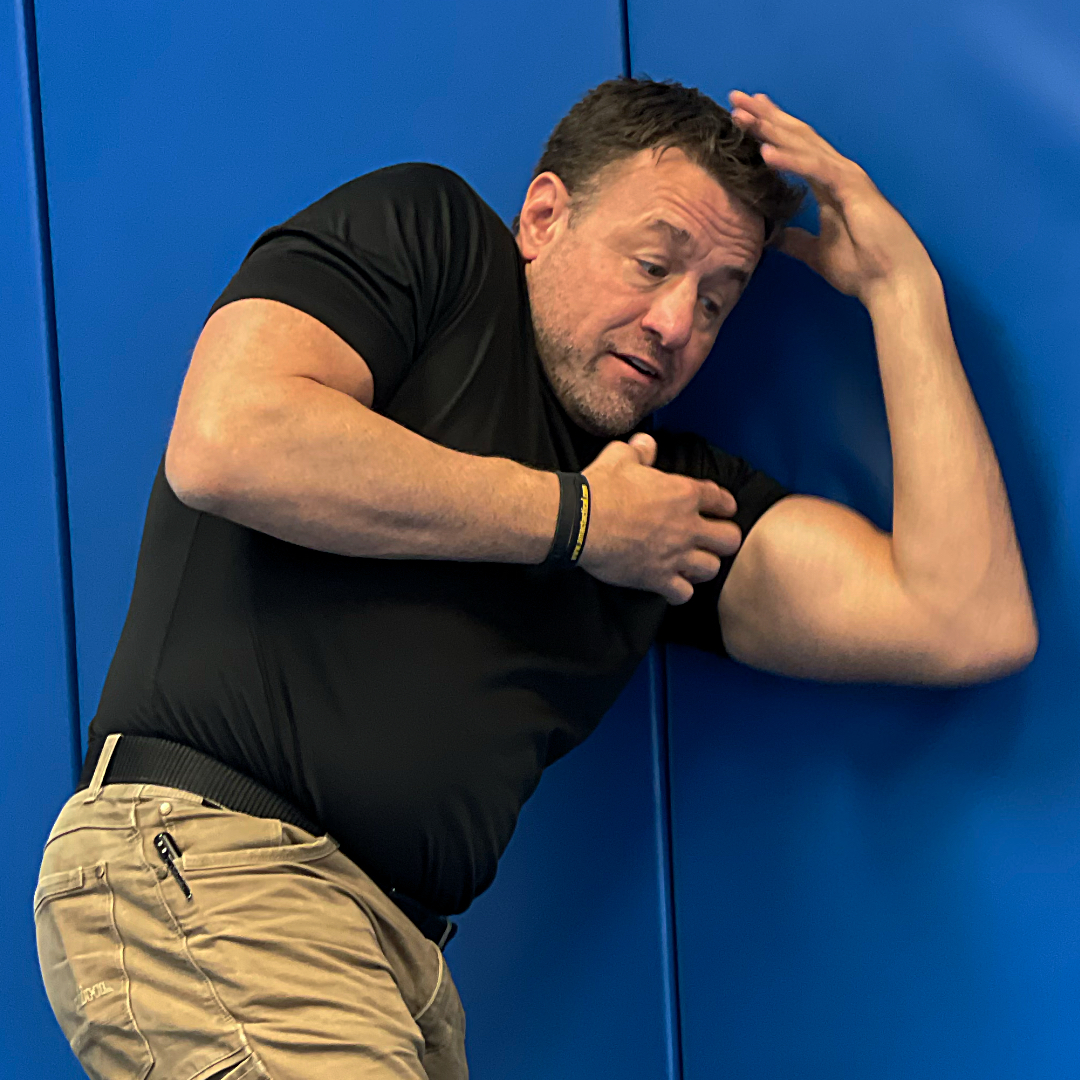
Hosted In Woodstock Georgia



Located just 30 minutes north of Atlanta, Woodstock has craft brews and chef-driven restaurants plus miles of trails and a vibrant music scene.
Woodstock, located in Georgia, exudes Southern charm and offers a delightful blend of history and a strong community spirit. The downtown area of Woodstock is brimming with energy, featuring a vibrant atmosphere and an array of exceptional dining and shopping options. With over 30 distinctive locally owned shops, you’ll discover a treasure trove of unique finds and exciting deals. Downtown Woodstock also boasts an enticing culinary scene, offering a diverse selection of locally owned restaurants that promise unforgettable dining experiences.
Adding to its allure, Woodstock is proud to be home to the Outlet Shoppes at Atlanta, Georgia’s newest premium outlet mall. Housing more than 100 world-class stores, shoppers can indulge in a delightful retail therapy experience.
Things to Do in Woodstock Georgia:
Requirements
Equipment Needed For DT Day:
- Focus Mitts
- IWB or OWB Training Holster
- Training Gun,
- Hard Rubber Knife – Training Dummy Knife
- Non-Marking Mat Shoes
- Plenty of water and snacks
Physical Requirements
Participation in this program requires a fundamental level of physical fitness, including the capacity to kneel on one knee and return to a standing position. However, we understand that injuries and physical limitations can occur. They won’t entirely prevent you from training with us if you have any such concerns. We are committed to modifying and adapting exercises to suit your needs and conditions. Our primary goal is to provide you with a high-quality educational experience, ensuring all participants gain valuable skills and knowledge, regardless of physical constraints.
Before engaging in any physical activity, including this event, it’s advisable to consult with your doctor for guidance and to ensure it’s suitable for your health and fitness level.
For training-related questions, contact
Alan: sifualanbaker@gmail.com
The Story
Throughout my life, I have devoted myself to studying and practicing martial arts and various combat sciences. About 16 years ago, my journey took a significant turn as I began designing specialized programs for those in the security, protection, law enforcement, and military sectors. A crucial aspect of this design process involved viewing combat encounters through the lens of individuals who carry firearms, either as a professional requirement or for personal protection.
This new perspective quickly led to a startling realization: traditional martial arts did not adequately address the needs and challenges of this environment. This pivotal moment highlighted the gaps in my knowledge and the limitations of the martial arts disciplines I had mastered. Despite their depth, these traditional systems lacked comprehensive strategies for the types of situations I was now considering. This revelation set me on a path to seek answers beyond the confines of conventional martial arts styles. Yet, as I explored various other disciplines, it became increasingly clear that they, too, did not fully cater to these unique combat needs.
To address this deficiency, I launched an initiative I call “the Lab” with my team. We immersed ourselves in these complex scenarios, placing ourselves in challenging positions and testing our skills in direct combat with each other. Through this intense trial and error, we began to identify and develop practical solutions and training methods that effectively addressed these previously unexplored scenarios. This journey of exploration and discovery has led to developing a comprehensive curriculum tailored to fill these specific gaps. This curriculum is more than just a set of techniques; it’s a fusion of traditional martial arts wisdom with practical, scenario-based tactics suitable for individuals operating in high-risk environments where firearms are a factor. This body of work represents a significant evolution in martial arts training, bridging the gap between age-old practices and the modern demands of combat and self-defense in a world where carrying firearms is a reality for many.
I found myself reevaluating and reconstructing the fundamental mechanics across every aspect of the “Combat Blueprint,” from standing and pummeling techniques to ground maneuvers. This comprehensive overhaul has culminated in a core curriculum, which I will be extensively teaching in this course.
Course Instructors
Sifu Alan Baker
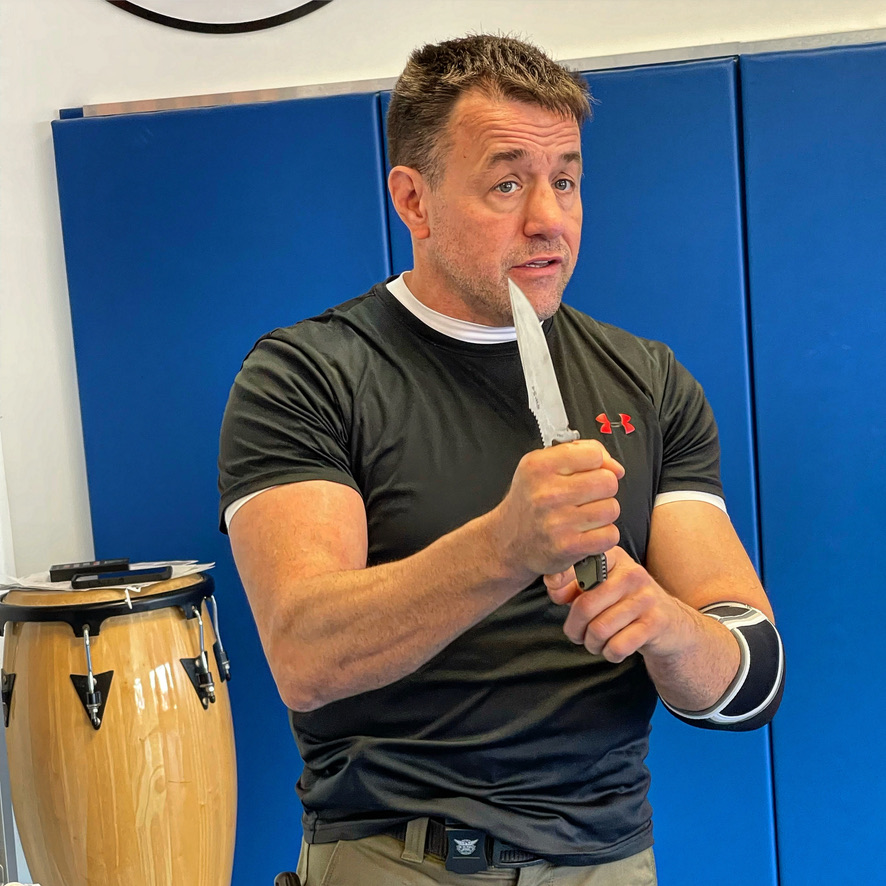
Alan Baker stands as an industry leader in the world of martial arts and self-defense, with a diverse and extensive background spanning more than four decades. Within this time, Sifu Baker has delved deep into the essence of over 20 martial arts forms, mastering various disciplines, including Gracie Jiu-Jitsu, Judo, Wing Chun Kung Fu, Zu Wei Shu Kung Fu, Muay Thai Boxing, and Pekiti-Tirsia-SMF Kali, among others.
His journey is adorned with advanced expertise, shaped partly by the wisdom and guidance of numerous world-renowned masters. Notable figures such as Guro Dan Inosanto, Ajarn Chai Sirisute, Sifu Francis Fong, Sensei Erik Paulson, Master Pedro Sauer, Sijo Dana Miller, Ajarn Greg Nelson, Master Bob Byrd, Professor James Cravens, Coach Justo Diéguez and Tuhon Tim Waid have all played pivotal roles in chiseling Sifu Baker’s skill set, further elevating his status within the martial arts community.
Sifu Baker’s global impact extends beyond individual skill enhancement, thanks to his brainchild, Baker Defensive Tactics (BDT), formerly AMAC Tactical Group. His pioneering methods in imparting knowledge on sophisticated defensive techniques, adept firearm usage, and precision in edged weapon handling transcend the conventional boundaries of martial arts training. His expertise is sought after by security experts from Fortune 500 entities, distinguished law enforcement agencies, SWAT divisions, and significant segments of the U.S. government apparatus, including the Department of Defense, CIA, and the Department of Homeland Security.
Additionally, Sifu Baker brings his extensive knowledge to prestigious platforms such as The Executive Protection Institute, The Vehicle Dynamics Institute, and Jason Redman’s Overcome & Survive Program as the lead Defensive Tactics Instructor.
Through his relentless dedication to the advancement and transformation of martial arts and tactical defense strategies, Sifu Baker has touched the lives of countless individuals. This commitment fortifies his standing as not just a master in his field, but also a trailblazing influencer in the spheres of combat and personal defense.
Dennis Rousseau
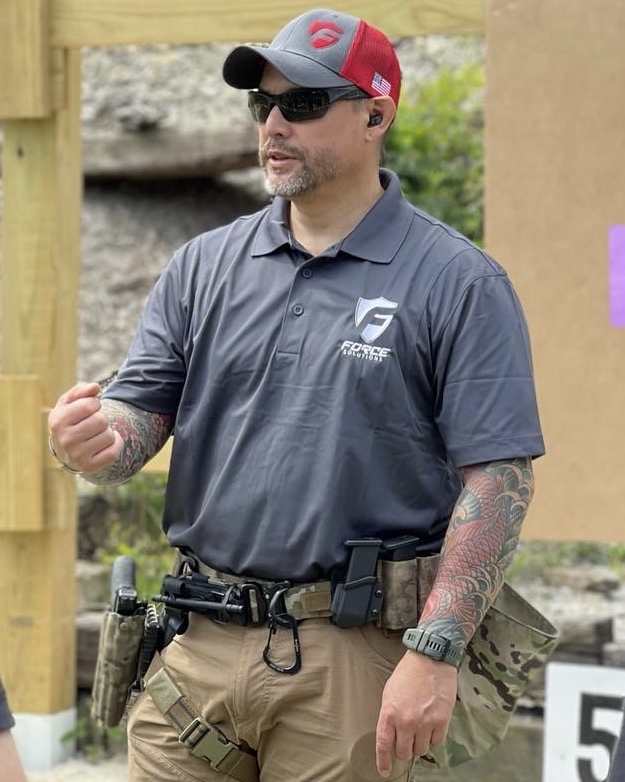
Dennis Rousseau is a highly experienced military veteran and active duty law enforcement officer with over sixteen years of service in a prominent Federal Law Enforcement agency. He is a full-time Primary Less Lethal Instructor specializing in de-escalation, ground tactics, hand to hand, edged weapons, force-on-force, less than lethal tools, cell, plane, vehicle extraction, and firearms training.
Dennis has earned various instructor qualifications from reputable organizations Federal Law Enforcement Training Center (FLETC), and the NRA Law Enforcement Division.
Dennis holds an extensive background in martial arts and combatives, holding a Black Belt in Brazilian Jiu-Jitsu awarded by Master Pedro Sauer, and a Black Belt in Tae Kwon Do. Currently mentored under Sensei Erik Paulson in Jiu Jitsu, Combat Submission Wrestling (CSW), STX Kickboxing, and Shoot Wrestling. Dennis’s primary instructor is Sifu Alan Baker, where he continues to train and holds various ranks in Brazilian Jiu Jitsu, Kali, JKD, Civilian Tactical, and Protective Response Tactics (PRT).
Dennis is the founder and lead instructor of Force Solutions, where he combines responsible firearms training with hand to hand self-defense. Surroundings, situational awareness, and de-escalation are core tenets taught at all levels of training.
Dennis’s philosophy on firearms and self defense training is rooted in the belief that Combatives and firearms training must be taught consistently to show civilians and law enforcement the reality of how situations may occur.
